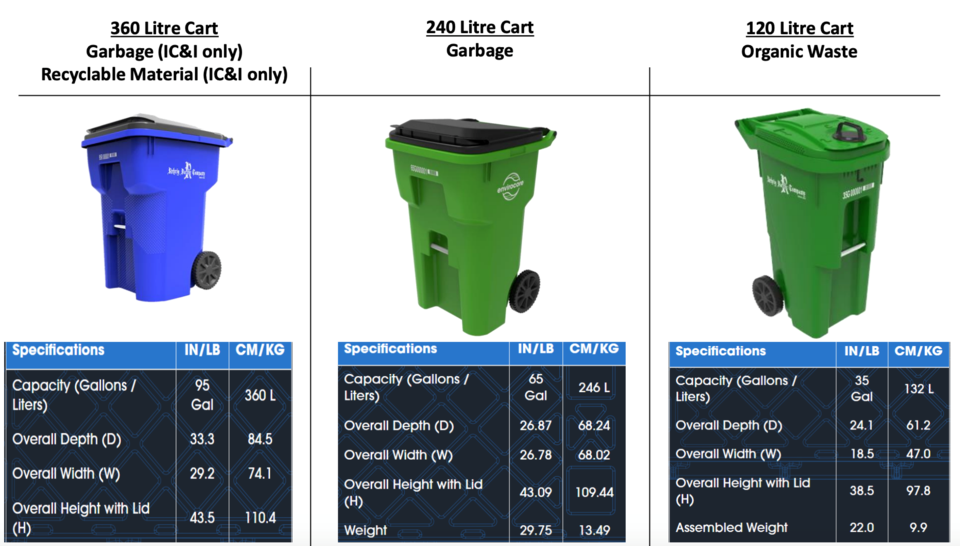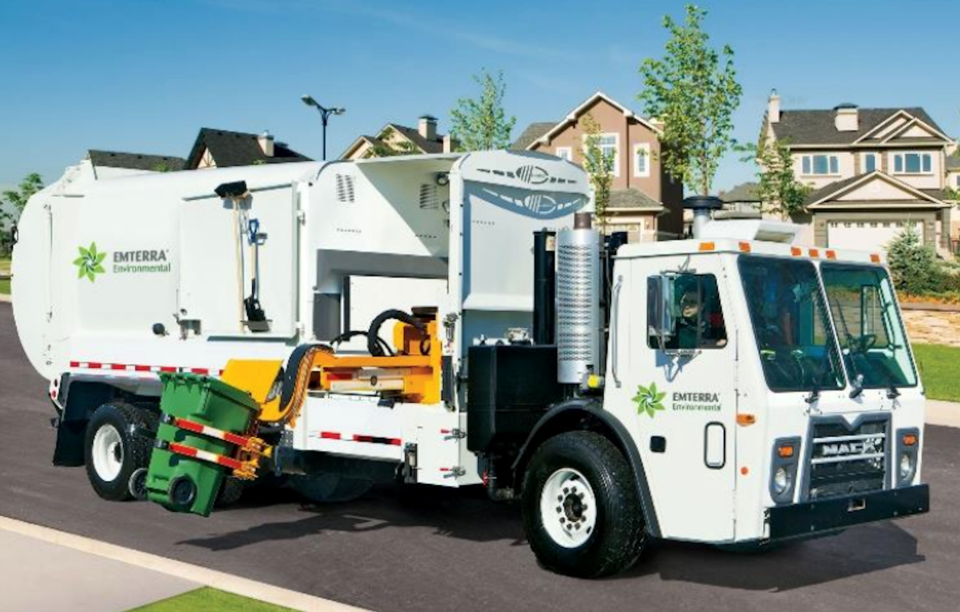Barrie’s solid waste collection costs are projected to more than double during the next five years, city councillors heard Thursday evening.
Sitting as infrastructure and community investment committee, councillors heard a presentation that forecasts costs rising from $6 million this year to $13.57 million in 2027 for collecting garbage, organics, recycling, yard waste, and batteries.
“We have to be prepared that garbage removal is going to increase by one per cent of our total budget,” said Coun. Clare Riepma. “It will be a significant hit.”
Next year, the city will have a new collections contract, and a new collector, that will change to new carts (or bins) picked up by automation on the trucks.
“The new collections contract, unlike the old, is based on serviced units, the amount of stops that they have to make to collect,” said Chris Marchant, the city’s manager of environmental operation, who made the presentation with Sandy Coulter, Barrie’s associate director of waste management and environmental sustainability.
“Things (costs) go up,” Marchant said. “There’s no sugar-coating it — it is what it is.”

Driving the cost increase is the change coming to the city’s waste collection system.
And while all of the particulars have not been finalized, much is already known.
The existing waste collections contract with Waste Connections expires April 30, 2024, and the new contract with the Emterra Group begins May 1, 2024. It's an eight-year deal with options for two one-year extensions.
Not only who collects the waste is changing, but how as well.
Barrie’s new collection contract will use manual collection from May 1, 2024 until Sept. 7, 2025. The next day, Barrie will make the transition to automated collection, with the use of carts or bins for all materials except yard waste. The carts will be provided to residents.
“There’s very little interest from the industry to service a manual collection contract. They’re just not interested,” Coulter said. “And they’re not interested because they cannot attract and retain staff. No one wants to do that anymore.”
Changes would also include green-bin collection expanded to include pet waste, and extended to industrial, commercial and institutional (ICI) properties and city facilities, improved yard waste collection, daily to twice-a-week collection in the downtown Business Improvement Area (BIA) and no collection holiday schedule shifting, except for Christmas and New Year’s Day.
Additionally, these changes also include transferring the responsibility for blue-box collection, processing and marketing from Ontario municipalities to the producers of recyclables. After Dec. 31, 2025, producers assume responsibility for transitioning communities to the new system.
Rebecca James-Reid, executive director of Access Barrie, the city’s communications arm, said councillors and the city will hear about the changes from residents.
“I think it’s an obvious situation that customer service eventually will get better, once we have the carts (bins), but the transition … we’re cautioning that there will be a lot of confusion and I think there will also be a lot of customer service complaints,” she said.
“When you think about the service levels that we deliver as a municipality, this one is hitting every single household in Barrie, so you’re going to hear complaints and if we don’t properly communicate all those different phase changes starting next May, you’re going to be inundated with calls and so will Service Barrie,” James-Reid told committee members.
She said the city will need a communications person to handle just this issue.
Whether the changed service levels are worth the money is also a question Barrie residents will be asking themselves as the changes occur.
A number of factors will contribute to the cost increase, including the expansion of organics collection and processing, including pet waste, more frequent collection within the BIA, curbside collection expanded to multi-residential buildings, private roads and laneways, equipment retrofits for auto-cart collection and buying the carts, the transition of eligible blue box collection/processing to producers, and annual contract cost escalation triggers such as the consumer price index (CPI), fuel adjustments, and more stops for service, based on population growth.
These changes all stem from provincial initiatives.
In June 2016, the province enacted its Resource Recovery and Circular Economy Act, which required the development of a strategy for a waste-free Ontario.



